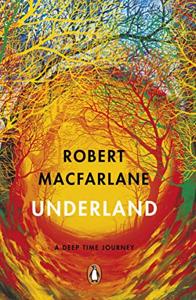
Want to learn the ideas in Underland better than ever? Read the world’s #1 book summary of Underland by Robert Macfarlane here.
Read a brief 1-Page Summary or watch video summaries curated by our expert team. Note: this book guide is not affiliated with or endorsed by the publisher or author, and we always encourage you to purchase and read the full book.
Video Summaries of Underland
We’ve scoured the Internet for the very best videos on Underland, from high-quality videos summaries to interviews or commentary by Robert Macfarlane.
1-Page Summary of Underland
Mein Börsenbrevier
If you have money, you can speculate; if not, don’t. André Kostolany was a speculator who made and lost a lot of money over the course of his 55 years in business. He speculated with everything that seemed promising at the time—from gold to oil to currencies. “Today I’m bullish!” he’d say like a bull charging forward before knocking down its opponent’s horns. Stories about early speculators are found in the Bible: Joseph from Egypt was one of them. In ancient Greece people used coins as currency for speculation. Isaac Newton, Voltaire, and Balzac were all known for their stock market investments in addition to their other accomplishments.
The stock market has a special logic that is different from the logic of normal consumers. It is capricious like a beautiful woman. In this logic, there are only offers and demands; thus, the price development depends on what proportion of sales and purchase orders at limited prices stand in relation to those without price limits. If you want to speculate in the stock market, you need much imagination and foresight. And capitalists tend more towards long-term bonds when they only receive low interest for short-term deposits. This applies even more so if better monetary stability means less risk for the future.”
If you want to make a precise judgment about the stock market, it is essential that you keep inflation constantly in mind. The monetary policy of a government can be followed quite precisely because it doesn’t hide its intentions. Then the stock market reacts as soon as possible and the prices change. There are two kinds of securities owners: speculators and gamblers. Kostolany refers to them as hard-boiled guys and shivering ones (frightened people). The first have money, patience, and thoughts; the second don’t have any of these things. Nothing is easy either in speculation or life itself. In the end everything comes around like it should be: 2 x 2 = 4 – but only at the end result according to Kostolany! This result is achieved by way of detours though because “temporary disturbance” means stay put and listen carefully while “big decisions over war or peace” mean being on your feet ready for action if necessary when big news hits. Become hard-boiled speculator with ideas, money, patience, luck—and never let go of an idea once you’re convinced about it! Be hard but flexible then too! And one thing more: Don’t try to get back lost money no matter what at all costs. The art of successful trading consists in recognizing timely moments; deciding quickly on actions; acting boldly without hesitation whenever needed! Thus markets are often dangerous games with rules which must be observed even during cannon fire when buying stocks or harp music when selling them (as well as) especially dangerous misinterpretation(s) right information(s)! So rely neither on advice from a wonder rabbi nor from an esteemed banker rather follow your own methods instead !
The analyst thinks that the stock market leads. Often, Kostolany was asked where he gets his ideas from. His answer: “I find them in all people, except for bankers, brokers and analysts because they can’t see beyond the trees.” Collect your information from taxi drivers, news reports, radio and newspapers. Don’t read the prices as they’re already yesterday’s news. “Tell me about the past and I will tell you about tomorrow” – A chart is best at showing what happened yesterday and today. Chart reading is a science in itself
You can win, but you have to lose. A stockbroker must be superstitious because this is the opposite of science, which is mathematics. Besides chart analysis there are computer analyses – but too much knowledge can often be harmful. The computer is therefore no competitor to a speculator, but only a useful instrument. But don’t rely on computers alone; they could be fed false information by someone else or they may malfunction for other reasons as well.





